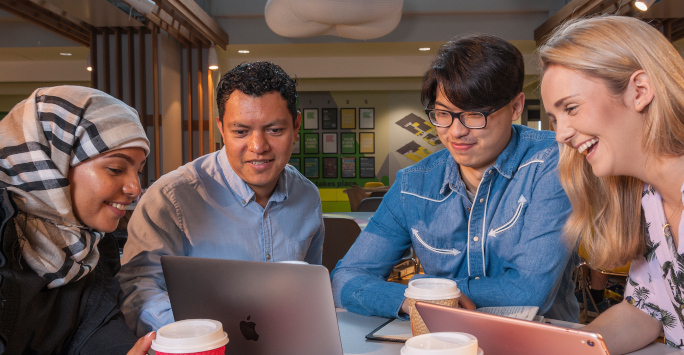
The stark comparisons between a taught Masters and a postgraduate research position with the CDT alleviated many of my fears that the first year of this PhD programme would be a solo sprint and not the team marathon it has turned out to be...
My Journey
I graduated from the University of Liverpool with a Masters in Mathematical Sciences in Autumn 2020 following an undergraduate degree in Applied Mathematics at the same university. Having completed four years of further education without an extended break, you can imagine how tentative I was in applying for this opportunity with the DA CDT. For some time, and even after having completed my application, I considered taking an extended break. Especially amidst the stay-at-home mandate, the opportunity to join the CDT, albeit a unique one, became a very daunting decision.
After the intensity of a full-time Master’s course, my main concern was an unrelenting stream of work under the same pressures as my MSc with the same low-level support I received from the few people I maintained contact with while I completed my assignments. The reassurances that were made by the CDT Director, Prof. Simon Maskell, calmed much of my anxiety in accepting this position. The stark comparisons Simon made between a taught Master’s and a postgraduate research position with the CDT alleviated many of my fears that the first year of this PhD programme would be a solo sprint and not the team marathon it has turned out to be.
The reassurances that were made by the CDT Director, Prof. Simon Maskell, calmed much of my anxiety in accepting this position.
The analogy of a team marathon is an alarmingly accurate description for this programme. I have spent the past four years inadvertently training for this PhD, slowly but surely working on the relevant skills I need to approach my research in a manner which suits me. Any pressure I feel to ‘perform’ is nothing else than the pressure I put on myself to uphold the standards I expect from my work and is never what may be considered the ‘negative’ pressure I associated with exams, for example.
As for my concerns regarding a lonesome first year, the reality could not be farther from the truth. Of course, with the current situation we all find ourselves in, in-person contact has been limited and, yes, that has at times been an issue. But life would have been far, far worse during my first year here with the CDT were it not for the team I work with daily, albeit over MS Teams. The group projects, overlapping research areas, weekly catch-up meetings and social events have far surpassed my expectations in how much of a collaborative effort this position has been. Yes, I have my own research to work on but even that has the full support of my supervisors and industry partners at GCHQ, who have expertly guided me through this first year by letting me get on with the work I am interested in meanwhile offering gentle nudges in a forward direction should I need them.
The group projects, overlapping research areas, weekly catch-up meetings and social events have far surpassed my expectations in how much of a collaborative effort this position has been.
I cannot discuss the ease of transition from MSc to PhD without mentioning Prof. Simon Maskell, our Director, Kelli Cassidy, our Centre Manager, and Sara Parker, our Centre Support Officer. The work they have done and continue to do has built a team of researchers who are technically all in different stages of their progression but work effectively and contently as a team.
I hope this short passage has given anyone considering taking a position here at the DA CDT the reassurances they might need to make the correct decision for themselves. I think very highly of everyone I work with, from my fellow PhD students to our management team and wider research group. They have turned a decision I thought was a difficult one, in hindsight, to the best decision I could have made and I’m eager to find out where this PhD takes me and to continue working alongside an exceptionally bright group of people.
My Project: Fully Bayesian Gaussian Processes for Big Data
My project in partnership with GCHQ is on Fully Bayesian Gaussian Processes for Big Data. Gaussian Processes, or GPs, are non-parametric, highly flexible models used for both regression and classification tasks. They provide rich insights into the patterns within data with built-in uncertainty quantification. The main areas of research with GPs are scaling them up to perform well on data sets of sizes in the millions and forming fully Bayesian GP models.
I hope this short passage has given anyone considering taking a position here at the DA CDT the reassurances they might need to make the correct decision for themselves.
The Distributed Algorithms CDT at the University of Liverpool engages its students in impactful, cutting-edge and diverse research, allowing them to collaborate and develop their skills within the university’s data science community. Find out more about our work by visiting our website.